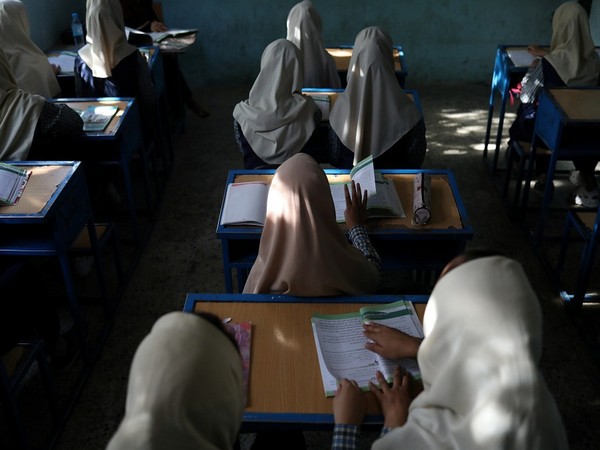First Person: Helping Afghan women to heal
Najiba*, a mother, counsellor, and former university lecturer, helps women heal from trauma in Afghanistan. Despite threats and restrictions on her freedom to move, she continues to enable women to learn and heal.

Najiba*, a mother, counsellor, and former university lecturer, helps women heal from trauma in Afghanistan. Despite threats and restrictions on her freedom to move, she continues to enable women to learn and heal.
“I have helped women survivors of violence regain their strength and resilience for the past 20 years. Each time I supported a woman, I felt victorious. I always wanted to do more and help even more women.
Now, I feel like every day new barriers are standing in my way, time stronger than the previous one. The number of women and young girls who need counselling is increasing.
Families are struggling to put food on the table more and more day by day and there are literally no jobs, putting violence at home on the rise. Women who were sole wage-earners have lost their employment—this is impacting their mental health. Schools are closed for girls; they feel like they have been robbed of their hopes. It is also becoming harder to engage men in the community to protect women against harmful practices and social norms.
 WFP/Julian FrankWomen wait for their children to be screened for malnutrition at a clinic in Balkh Province, Afghanistan.
WFP/Julian FrankWomen wait for their children to be screened for malnutrition at a clinic in Balkh Province, Afghanistan.
Early and forced marriage on the rise
All of this has made families resort to harmful ways of coping with everyday difficulties. Among them, early marriages and forced marriages are now frequent occurrences.
I have been working for over 20 years in this field. Families in my province know me. Women feel safe to share with me more than just the need for mental care. I listen to them every day as they tell me about the dreams they had—where they used to work or wanted to, where they wanted to go to school. They are eager to learn, and they are asking for more spaces for women where they can be free, learn and share their experiences.
In the mornings when I leave for work, I always tell myself that I am more than a counsellor. I am a healer for the women I work with, for my community. I am helping women overcome trauma but most importantly, I am helping them find the hope they lost and make new, brighter plans. Every day, I help women to enrol in literacy and vocational training classes so that they can continue learning.
What my job has taught me is that women need women to support each other in their healing journey. We need to continue helping women and girls around us to keep learning; it the only way to learn, to heal, to be healthy, to hope as they continue their journey on this bumpy road. The power to brighten our dark days lies in each and every one of us.”
* Names, locations, and course of events have been changed in this article to ensure the safety of the Afghan woman human rights defender featured.
,
UN Women in Afghanistan
- UN Women is on the ground in Afghanistan, supporting Afghan women and girls every day.
- The agency’s in-country strategy pivots around investing in women—from scaling up support for women survivors of violence in provinces where they have never been before, to supporting women humanitarian workers in the delivery of essential services and providing seed capital to women-led businesses.
- The goal of rebuilding the Afghan women’s movement remains central to the agency’s work.
- Find out more about UN Women's work in Afghanistan, and the situation for women in the country, one year on from the Taliban takeover, here.
Visit UN News for more.
- READ MORE ON:
- Taliban
- Balkh Province
- Najiba*
- Afghan
- Afghanistan
ALSO READ
Biden's Dilemma: Hostage Negotiations with the Taliban
High-Stakes Prisoner Swap: US and Taliban Navigate Complex Diplomacy
ICC Seeks Arrest of Taliban Officials for Gender Persecution
High Stakes Exchange: U.S. and Taliban's Diplomatic Prisoner Swap
ICC's Bold Move in Taliban Persecution Charges Sparks Global Reaction










